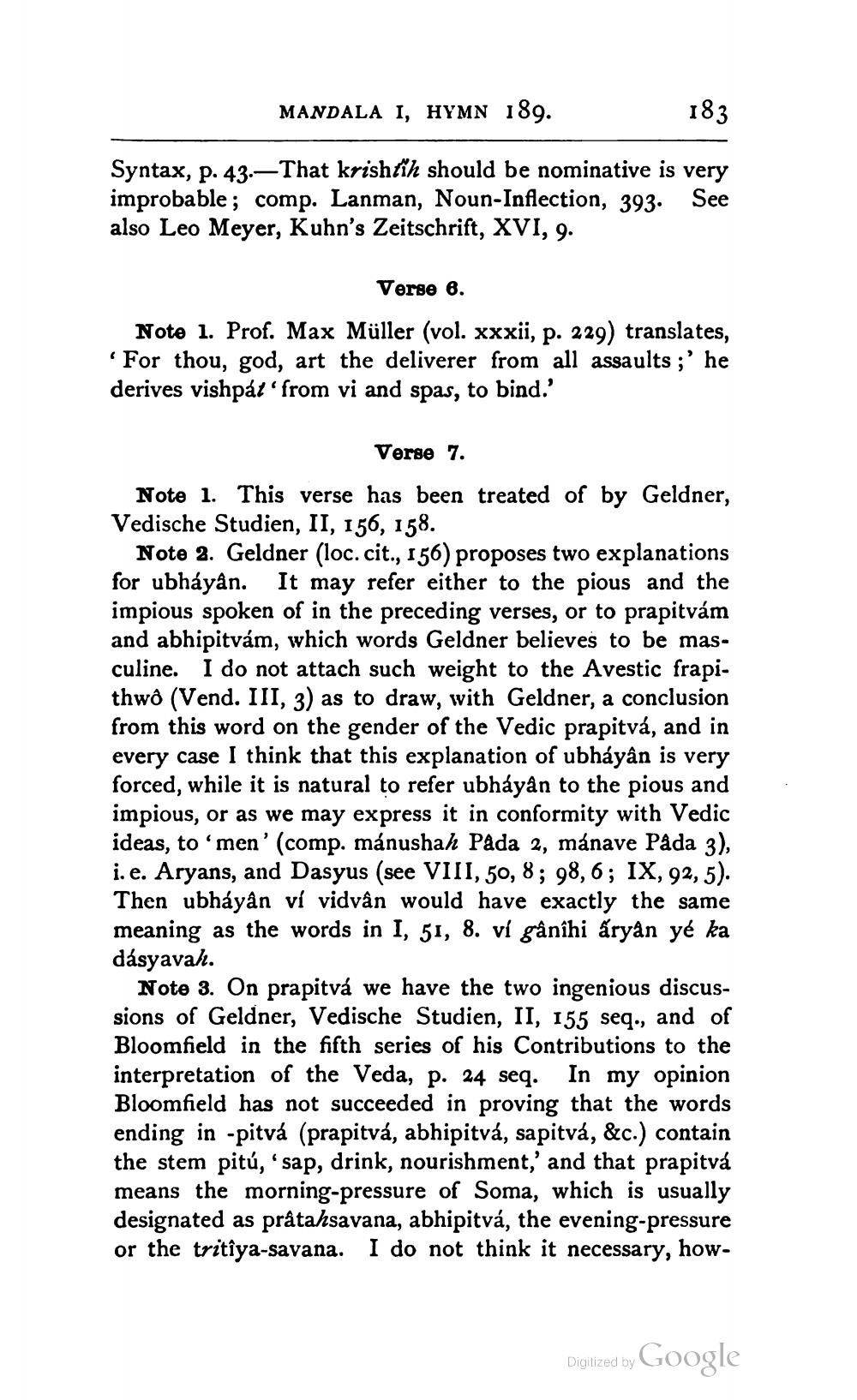________________
MANDALA I, HYMN 189.
183
Syntax, p. 43.—That krishtih should be nominative is very improbable; comp. Lanman, Noun-Inflection, 393. See also Leo Meyer, Kuhn's Zeitschrift, XVI, 9.
Verse 6.
Note 1. Prof. Max Müller (vol. xxxii, p. 229) translates, 'For thou, god, art the deliverer from all assaults ;' he derives vishpat' from vi and spas, to bind.'
Verse 7. Note 1. This verse has been treated of by Geldner, Vedische Studien, II, 156, 158.
Note 2. Geldner (loc. cit., 156) proposes two explanations for ubháyân. It may refer either to the pious and the impious spoken of in the preceding verses, or to prapitvám and abhipitvám, which words Geldner believes to be masculine. I do not attach such weight to the Avestic frapithwô (Vend. III, 3) as to draw, with Geldner, a conclusion from this word on the gender of the Vedic prapitvá, and in every case I think that this explanation of ubháyân is very forced, while it is natural to refer ubháyân to the pious and impious, or as we may express it in conformity with Vedic ideas, to 'men' (comp. mánushah Pada 2, mánave Påda 3), i.e. Aryans, and Dasyus (see VIII, 50, 8; 98,6; IX, 92,5). Then ubháyân vi vidvan would have exactly the same meaning as the words in I, 51, 8. vi gânîhi áryan yé ka dásyavah.
Note 3. On prapitvá we have the two ingenious discussions of Geldner, Vedische Studien, II, 155 seq., and of Bloomfield in the fifth series of his Contributions to the interpretation of the Veda, p. 24 seq. In my opinion Bloomfield has not succeeded in proving that the words ending in -pitvá (prapitvá, abhipitvá, sapitvá, &c.) contain the stem pitú, sap, drink, nourishment,' and that prapitvá means the morning-pressure of Soma, which is usually designated as prátahsavana, abhipitvá, the evening-pressure or the tritîya-savana. I do not think it necessary, how
Digitized by Google




